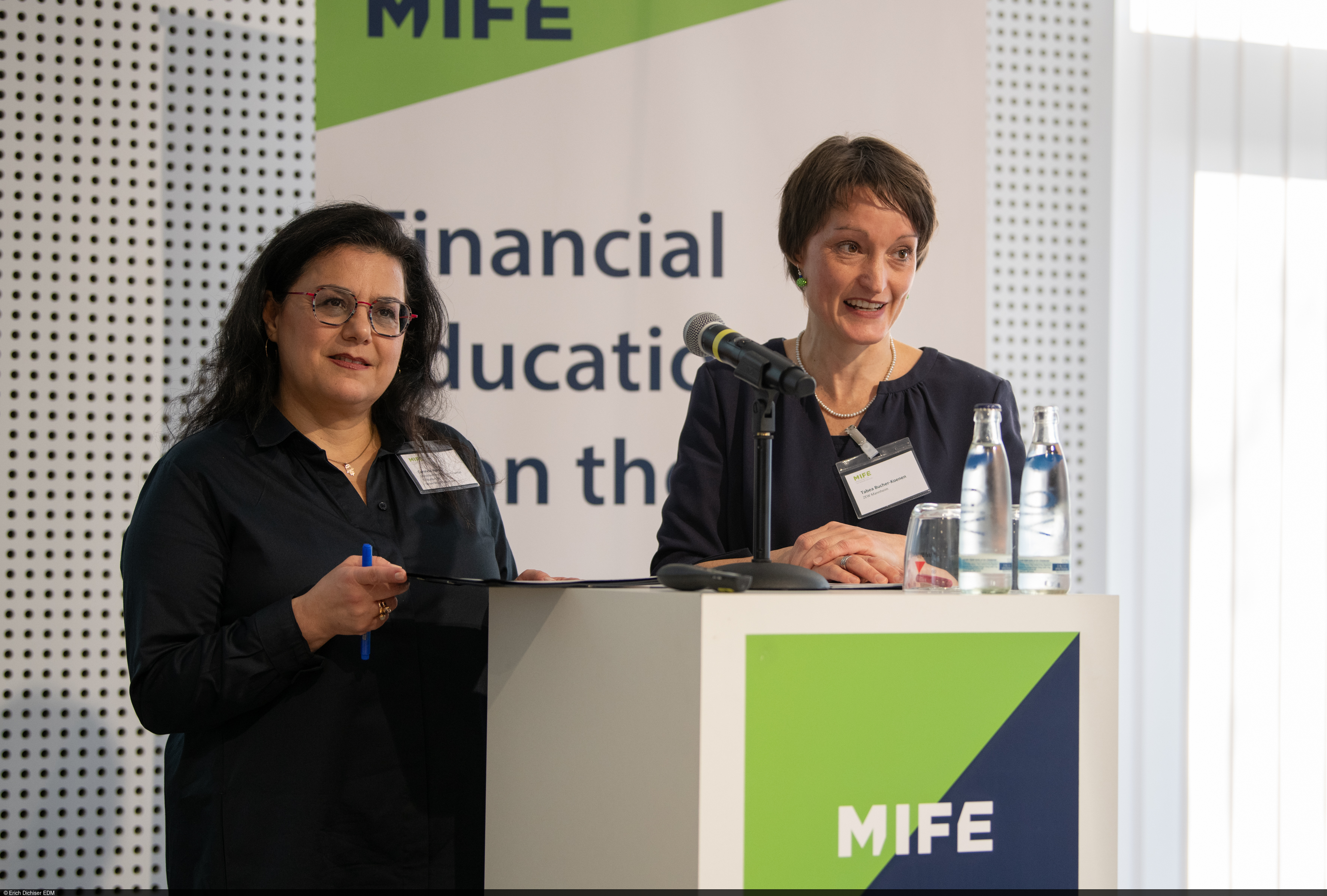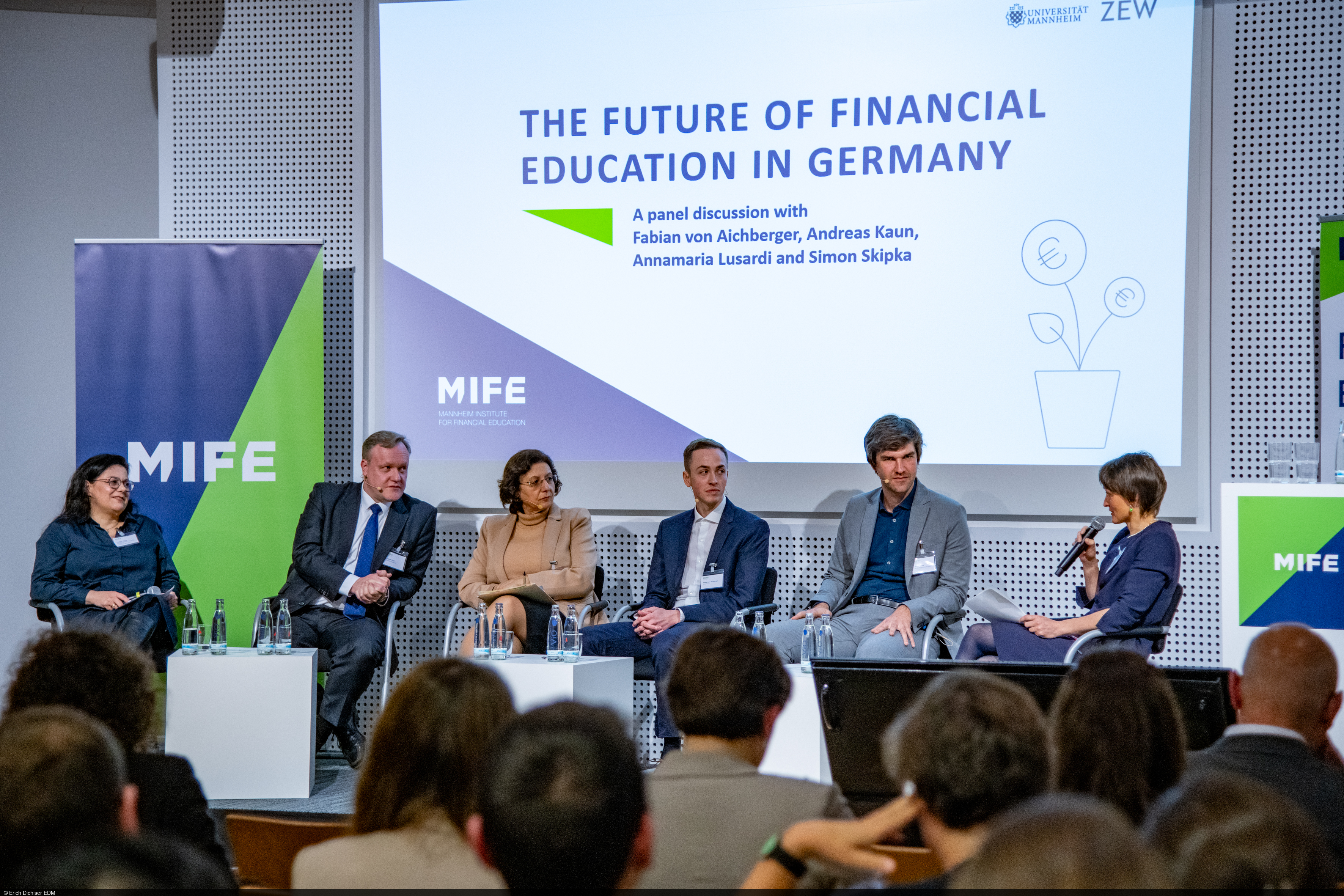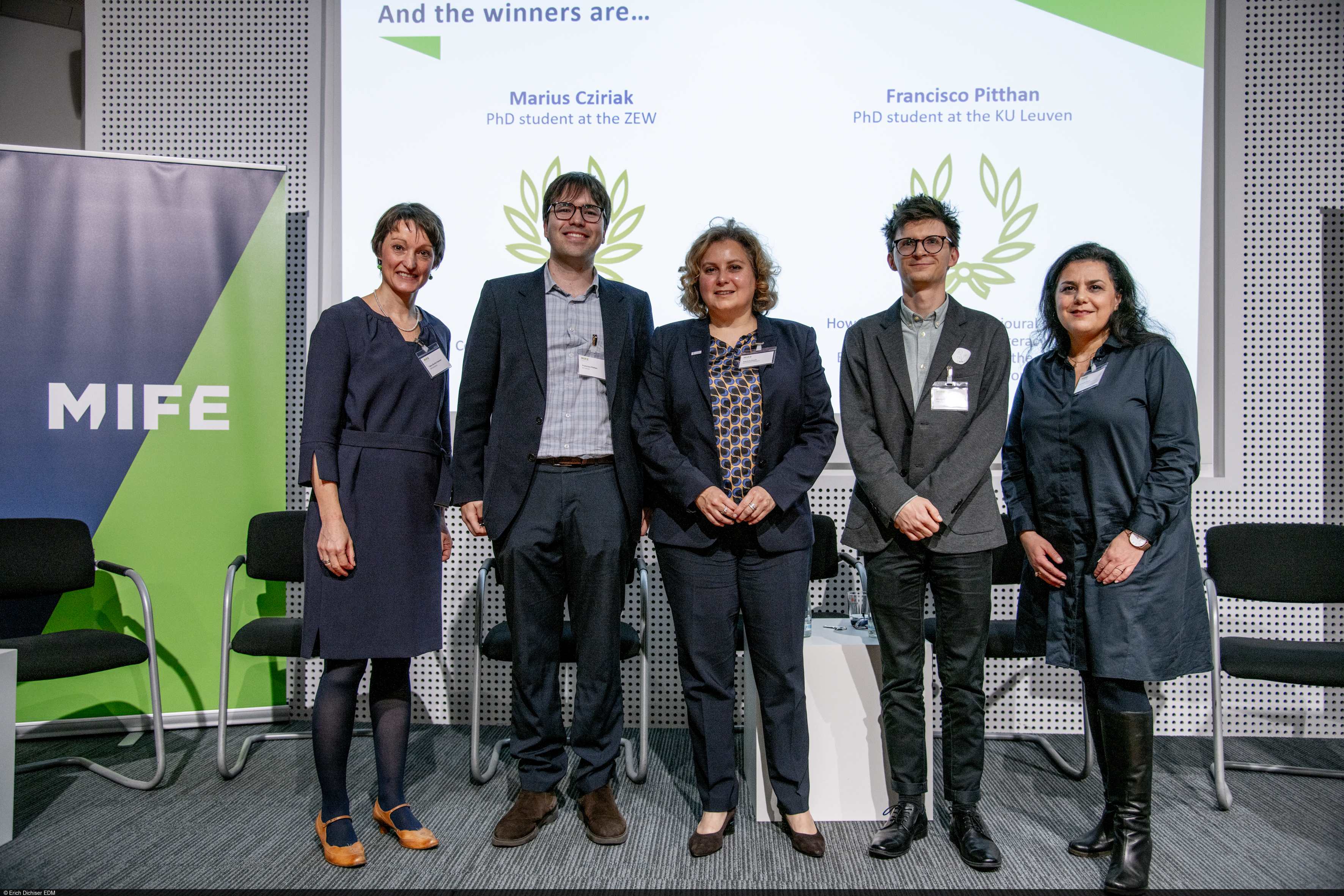2023 MIFE Conference: The Future of Financial Education
ConferencesThis year’s MIFE conference was dedicated to “The future of financial education”. It took place on 20 November in Mannheim. The conference was followed by a two-day workshop in which junior researchers presented and discussed their work. More than one hundred researchers and professionals visited this year’s conference and discussed research and visions on financial education in general and Germany’s financial education strategy in particular.
The conference started off with a keynote by Annamaria Lusardi (Stanford University), one of the leading and most recognized scholars in the field of financial literacy. She presented key insights from seven years of the TIAA Institute-GFLEC Personal Finance Index and related financial literacy to financial behaviour. The data reveals alarmingly low levels of financial literacy for a substantial share of the US population – especially on topics regarding investing, insurance and risk. Lusardi presented research that shows that targeted interventions can play a crucial role in bridging knowledge gaps across demographics. The challenge of financial illiteracy is not unique to the US, and countries around the world have taken proactive measures to establish national strategies for financial education, such as the recent initiative of the German Federal Ministry of Finance and the Federal Ministry of Education and Research, “Aufbruch finanzielle Bildung.” Lusardi stressed the importance of a data-driven approach, combining research, policy development, and targeted programmes towards fostering a financially literate society, improving outcomes at both the individual and societal levels.
In the second keynote, Bernadene De Clercq (University of South Africa) elaborated on financial education interventions for retirement planning. She emphasized the importance of a clear research design when studying the effects of such interventions. Since financial education interventions differ along many dimensions, like e.g. their delivery setting, the target audience and cost, it is not straightforward to compare the success of different interventions. Researchers should carefully document these factors when designing and evaluating interventions.
The third keynote, by Tom Lucey (Illinois State University), proposed a holistic perspective on financial literacy. He criticized the conventional notion of financial education for lacking attention to compassion, social justice and ethical integrity, as it often upholds an ideology that benefits those who are economically well off.
In the last keynote of the day, Jens Brandenburg (Federal Ministry of Education and Research) highlighted the pressing economic challenges facing the world today. Addressing these challenges, he noted that financial education is a cornerstone of individuals’ economic situation. Brandenburg underscored the importance of financial literacy in various life stages, such as managing mobile contracts for the young, understanding employment dynamics for adults, and navigating pension plans for the elderly.
To enhance financial literacy in Germany, Brandenburg stressed the collaborative effort between the Federal Ministry of Education and Research and the Federal Ministry of Finance. The initiative aims to create a platform for providing comprehensive financial education in Germany, with a commitment of research funding to be allocated to support research initiatives, improve information databases, and establish a robust empirical evidence base. He underlined the importance of research institutes like MIFE for providing such a research base.
The keynote was followed by a presentation of the project “FinBilD: An overview of financial education in Germany” by MIFE researchers Caroline Knebel (ZEW Mannheim) and Merve Suna (University of Mannheim). The project aims at providing a starting point and prospective directions for the development of a national financial education strategy for Germany. Suna and Knebel gave an overview of existing financial competence frameworks, took inventory of available financial education programmes and data bases, and showed first evidence based on current data sources. The final report will be published via the MIFE homepage at the beginning of 2024.
Fabian von Aichberger (Invest it!), Andreas Kaun (Deutsche Bundesbank), Annamaria Lusardi, and Simon Skipka (Federal Ministry of Finance) joined a panel discussion on the future of financial education in Germany moderated by Carmela Aprea and Tabea Bucher-Koenen. The panel discussion touched upon topics such as quality standards of financial education programmes, the identification of target groups and strategies for reaching them, the inclusion of stakeholders, and the benefits of developing a national strategy.
Finally, Patricia Staab (Deutsche Bundesbank) announced this year’s winners of the Deutsche Bundesbank Early Career Research Prize on Financial Literacy. Francisco Pitthan won the award for his paper “How learning about behavioural biases can improve financial literacy? Experimental evidence on the effects of learning about the myopic bias” which he co-authored with Kristof De Witte. Marius Cziriak received the award for the paper “Beyond knowledge: Confidence and the gender gap in financial literacy” that he wrote with Tabea Bucher-Koenen and Rob Alessie.
The conference day was followed by the MIFE Early Career Workshop. Annamaria Lusardi gave a lecture on the current state of financial literacy research. Twelve junior researchers presented and discussed their research papers on financial literacy.




